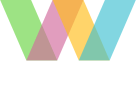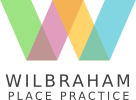Acupuncture at Wilbraham Place Practice…
“Acupuncture is a treatment which can relieve symptoms of some physical and psychological conditions and may encourage the patient’s body to heal and repair itself, if it is able to do so… read more“
Learn more about our Acupuncture services.
“Acupuncture is a treatment which can relieve symptoms of some physical and psychological conditions and may encourage the patient’s body to heal and repair itself, if it is able to do so… read more“
Check availability direct from our site here, or contact us
Acupuncture is a treatment which can relieve symptoms of some physical and psychological conditions and may encourage the patient’s body to heal and repair itself, if it is able to do so. Acupuncture stimulates the nerves in skin and muscle, and can produce a variety of effects. It increases the body’s release of natural painkillers – endorphin and serotonin – in the pain pathways of both the spinal cord and the brain. This modifies the way pain signals are received.
But acupuncture does much more than reducing pain, and has a beneficial effect on health. Patients often notice an improved sense of wellbeing after treatment. Modern research shows that acupuncture can affect most of the body’s systems – the nervous system, muscle tone, hormone outputs, circulation, antibody production and allergic responses, as well as the respiratory, digestive, urinary, and reproductive systems.
The practitioner will assess each patient’s case and treatment will be tailored to the individual; so it is impossible to give more than a general idea of what treatment might involve. Typically, fine needles are inserted through the skin and left in position briefly, sometimes with manual or electrical stimulation. The number of needles varies but may be only two or three.
Treatment might be once a week to begin with, then at longer intervals as the condition responds. A typical course of treatment lasts 5 to 8 sessions
TCM Acupuncture, Western Medical Acupuncture, Auricular Acupuncture & Acupressure.
Acupuncture-like techniques may have been used for over 5000 years, if evidence from Ötzi the Iceman is considered; however, the most well known system of acupuncture was developed in the Far East from around 2000 years ago. This was first introduced into Europe in the 17th Century, but widespread interest in the technique did not develop until the political events of the early 1970’s allowed travel restrictions between East and West to be eased.
In the past thirty years, because of the huge public interest in the subject, considerable scientific research on acupuncture has been carried out – although much remains to be done. It is demonstrably untrue to say that the results of acupuncture are all in the mind.
The distinction between complementary or alternative medicine and conventional medicine is becoming blurred as acupuncture is accepted in medicine. Acupuncture is already available in most hospital pain clinics and it is provided by an ever-increasing number of GPs and hospital doctors.
Source: The British Medical Acupuncture Society
© Wilbraham Place Practice
Website Design by Big Sky Web


